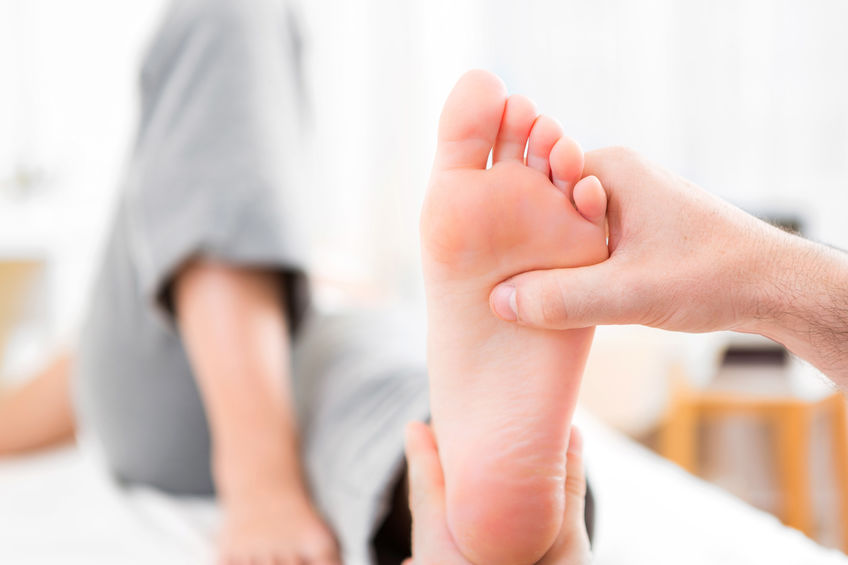European Foot and Ankle Clinic
We can help you! For your first evaluation and resolution to your concerns please visit us in our Hallandale Beach FL location. We speak English, Spanish, Polish and Russian.

Plantar Fasciitis
What Is Plantar Fasciitis?
Plantar fasciitis is the inflammation of the thick band of tissue that runs along the bottom of your foot, known as the plantar fascia, and causes mild to severe heel pain. Plantar fasciitis affects as many as one in ten people in their lifetimes. Although it affects all age groups, sexes, and ethnicities, there is a higher prevalence in women between 40 and 60 years of age. Because it is so common, many people think plantar fasciitis is both unavoidable and untreatable. Plantar fasciitis can be very uncomfortable.
Symptoms Of Plantar Fasciitis
Plantar fasciitis is often mistaken for heel spurs. It causes pain on the sole of your foot, and has been described by sufferers as a stabbing pain in the bottom of their feet.
Symptoms of plantar fasciitis can include:
- Sharp pain in your foot
- Significant pain when you first get up in the morning
- Foot pain after exercise
- Foot pain after standing or sitting for long periods
Some Tips that Can Help to Reduce Risks of Plantar Fasciitis
Plantar fasciitis strikes without warning, but there are things you can do to increase your chances of staying healthy. Here are some suggestions from our doctors:
-
Maintaining a healthy weight will protect feet and ankles from numerous afflictions. Eat a well-balanced diet rooted in lean protein, whole grains, colorful fruits, and vegetables.
-
Wear sensible comfortable shoes. High heel shoes also make you vulnerable to plantar fasciitis.
-
Alternate high-impact start-and-stop athletic activities like tennis or basketball with lower-impact options like swimming and bicycling.
-
Stretch before and after exercise and even when you’re just watching television at home. Stretching helps keep soft tissues supple and healthy.
Our podiatrists at European Foot and Ankle Clinic have a great experience in treating plantar fasciitis as it is the leading cause of heel pain. A podiatrist may use tests such as an MRI, X-ray or ultrasound to properly diagnose plantar fasciitis and rule out other ailments that also cause heel pain.
Call us today if if you’re experiencing pain in your heel or foot: 754-971-6090. Or schedule an appointment here: https://europeanfootandankleclinic.com

